People
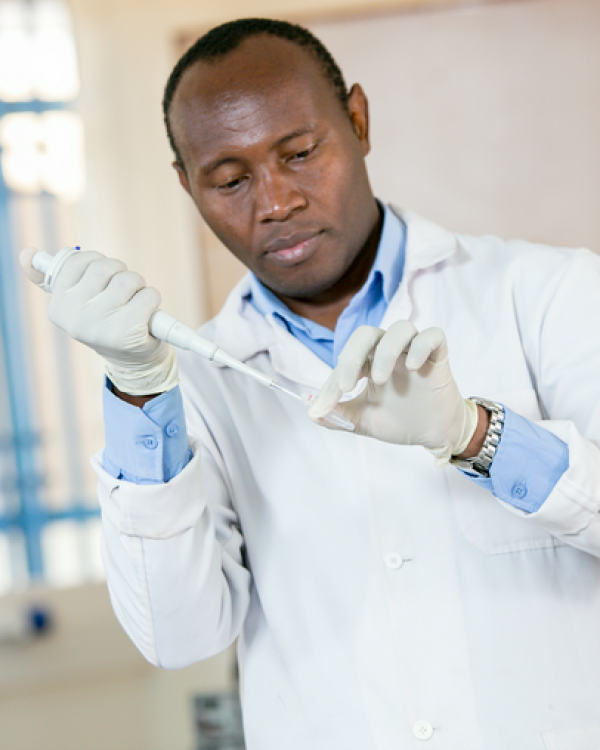
Jesse Gitaka
Principal Investigator
Jesse Gitaka is a Physician scientist, senior lecturer and principal investigator at Mount Kenya University and visiting associate Professor at Institute of Tropical Medicine, Nagasaki University, Japan. His research focuses on tropical diseases, maternal and newborn health through the development of improved, fast and reliable rapid diagnostics for applications mainly in resource-limited settings. He is an affiliate of the African Academy of Sciences, a Next Einstein Fellow and winner of the Kenya Newton Prize for the year 2020. His hobbies are playing football, Chess and sight-seeing especially in the rich Kenyan wild.

Lab Members
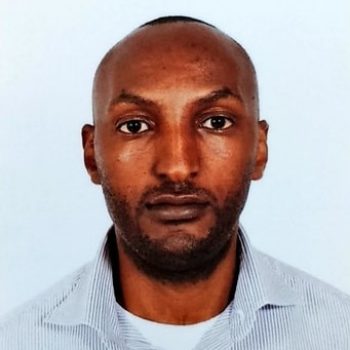
Kobia Francis
Kobia Francis is a Postdoctoral fellow with a background in cell and molecular biology. He obtained his PhD in molecular medicine at the European School of Molecular Medicine (SEMM)/the University of Milan, Italy. He did his postdoctoral research at Cincinnati Children’s Hospital in the lab of Prof. Raphael Kopan and the University of Milan in the lab of Prof. Thomas Vaccari. He is currently investigating the molecular basis of fetal-maternal innate immune conflict during human placental malaria and its potential for pharmacologic modulation to improve placental malaria outcomes. This project has received funding from the EDCTP2 programme supported by the European Union and Novartis Global Health Basel Switzerland. When not working, Kobia enjoys playing ping-pong and badminton.
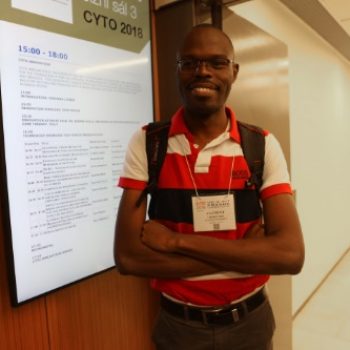
Clement Shiluli ( PhD )
Globally, approximately 357 million cases of curable sexually transmitted infections (STIs) are reported. Chlamydia trachomatis, Neisseria gonorrhoea, Trichomonas vaginalis and Treponema pallidum account for the majority of these infections. Most of the STIs are asymptomatic and complications can result in severe morbidity and mortality particularly in low-income countries.
Clement is a Postdoctoral Research Assistant mainly focused on validating novel Point of Care diagnostics that would improve the identification and treatment of patients with curable STIs in Kenya. Previously, he has researched drug-resistant TB in areas with a high incidence of HIV and malaria using molecular and immunological techniques.
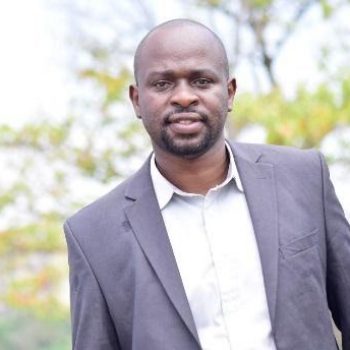
Philip Kamau
Philip Kamau holds a Master of Science degree in Agricultural Economics from Kenyatta University. His career passion is socio-economic research in agriculture, rural development, adoption and impact of agricultural technologies among smallholder farmers, production economics, and value chain development. During his free time, he spends time with his family.
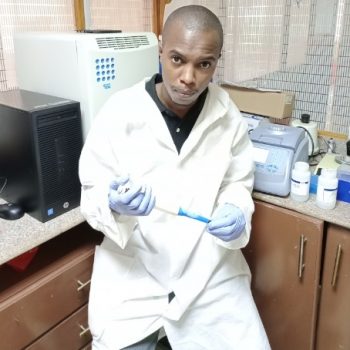
Maina M Mwangi ( Research Assistant )
Maina M Mwangi, Research Assistant is a postgraduate student at Jomo Kenyatta University of Agriculture and Technology (JKUAT) specializing in Bioinformatics and Molecular Biology. His research work is mainly focused on the Genetic diversity of Plasmodium falciparum Circumsporozoite protein. He holds a Bachelors degree in Pharmaceutical Sciences (Maseno University). Outside class, you will find him playing football and coding.

Carol Kijogi ( PhD )
Carol Kijogi PhD, is a Postdoctoral Researcher Fellow at Mount Kenya University who holds a PhD in Medical Sciences (Nagasaki University). Her research is focused on the influence of active placental malaria infection on the polarization of macrophages hence impacting pregnancy outcome. An intricate balance of two classes of macrophages is required during pregnancy to sustain it and when this is perturbed, it results in adverse pregnancy outcomes. By understanding the immuno-pathogenesis of malaria in pregnancy, targeted therapeutic measures can be explored to ameliorate these outcomes. Other interests dear to her heart include Food security among children heavily afflicted by poor nutrition that predisposes them to infections. She believes that engaging children early on in life in solution-focused science can shape how they understand and interpret science needed to unravel solutions that enhance the quality of life for all mankind. Outside the lab and classroom, she enjoys travelling, nature walks, dancing and spending time with her family.
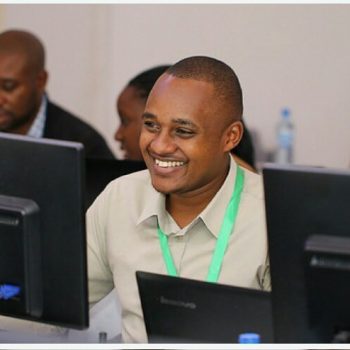
Harrison Kihuga

Dr Ernest Wandera
PhD (Post doc)
Dr. Ernest Wandera is an EDCTP Fellow in the Directorate of Grants and Development, Mount Kenya University and a Senior Research Scientist at KEMRI-Nagasaki University Institute of Tropical Medicine. He holds a PhD in Medical Science (Tropical and Emerging Communicable Diseases) from Nagasaki University, Japan and a Postdoctoral Fellowship in Pathogen Point-of-Care Diagnostics from Mount Kenya University and the University of Hull, UK. For over 12 years, Dr. Wandera has been conducting basic and clinical research to guide the development, implementation and evaluation of high-impact and cost-effective public health intervention tools such as vaccines and diagnostics. His current projects include: (i) Development and application of novel point-of-care diagnostic devices for COVID-19, Cryptococcus neoformans and maternal pathogens (ii) Rotavirus project in collaboration with Mitsubishi Tanabe Pharma Corporation, Japan to assess the impact of the current rotavirus vaccine and develop an alternative vaccine; (iii) Enteric virus project in collaboration with Nagasaki University to determine the epidemiological trends of diarrheal viruses in Kenya before and after rotavirus vaccination; and (iv) Whole genome sequencing-based surveillance of diarrheal viruses in collaboration with Fujita Health University to provide insights into origin, evolution and transmission dynamics of these pathogens. Additionally, Dr. Wandera conducts Biosafety Level III laboratory training for scientists researching on emerging infectious diseases. He has co-authored over 25 publications in peer reviewed journals and presented his research work in various international and local conferences.
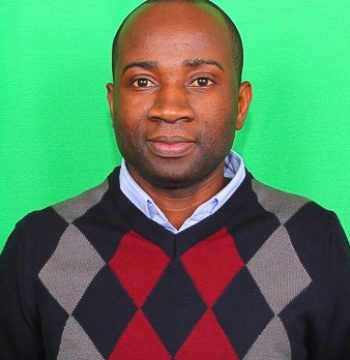

Racheal Kimani (PhD student)

Samuel Mungai
Samuel Mungai is a researcher working in Mount Kenya University with research interests in Implementation research science, emerging diseases and epidemiology in public health. He holds a bachelor’s degree in Nursing from The University of Nairobi and a master’s degree in public health from Kenyatta University. He is currently pursuing his PhD in public health with a focus on implementation research in Mount Kenya University. He is the author of research articles in Metabolic syndrome, reproductive health, Antimicrobial resistance, neonatal health among others. He is also a member of several project teams working in various fields of human health. He has more than 10 years experience in nursing practice and education.
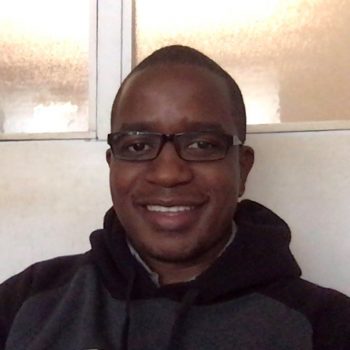
Josiah Kuja (Post doc)
Josiah Kuja is a Bioinformatician with a background in Molecular and Microbial Ecology (PhD, MSc, and BSc). His research interest focuses on microbial interactions and their significance in antimicrobial drag resistance, especially in resource-limited settings. He has the knowledge of low (below sea level) and high (above sea level) altitude microbial community structure. He uses bioinformatics tools to uncover the hidden history of organismal interactions and development within their ecosystems. He also uses bioinformatics to justify the significance of genomics in global bio-economy following drastic climate change in the recent decades. Josiah is an enthusiastic research article writer and a reviewer in Current Research in Microbial Sciences (CRMICR), Elsevier. Currently, he is part of the steering committee and partnership coordinator for the Africa Bio-Genome Project (AfricaBP- https://daisea245609019.wordpress.com/about/), which is an affiliate to Earth Bio-Genome Project (EBP) in which he serves as a member of the scientific committee on sequence data analysis https://www.earthbiogenome.org/data-analysis. AfricaBP and EBP aim at sequencing all non-human living organisms in Africa and the world, respectively for a sustainable development and shared prosperity. He cherishes nature trail, equatorial glacier ecosystems, and mountain climbing with a record of 5190 m a.s.l. expedition.
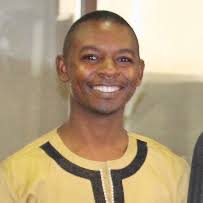
Bernard N. Kanoi
Dr. Bernard N. Kanoi, Ph.D. is a Biomedical Scientist and an EDCTP Fellow in the Directorate of Grants and Development at MKU. He holds a degree in Biomedical Sciences (Maseno University) and received his Ph.D. from Ehime University, Japan. Prior to joining the MKU, he was involved in conducting blood-stage BKSE36 malaria vaccine trials and immuno-epidemiology studies in Northern Uganda. He then worked as a Post-doctoral Fellow on several projects at Division of Malaria Research, Proteo Sciences Center, Ehime University, before becoming the Assistant Professor in the same Division where he remarkably transformed the application of the innovative Wheat Germ Cell-free System in malaria research through high-throughput immuno-profiling and reverse vaccinology studies.
He has received several awards and fundings to support his research. His current study focuses on understanding how immunity against malaria-causing parasite is acquired (or lost) in children and during pregnancy, and how it mediates protection against subsequent infections for vaccines and immunotherapeutic development.
Dr. Kanoi has coauthored more that 25 original peer-reviewed research papers majorly on characterization of vaccine antigens and malaria clinical studies. Several of the papers are published in high impact journals. He is also a review editor to several scientific journals.
Alumni Lab Members
Dr Joe Mutungi
Dr Dominic Mureithi
Muturi Njokah
Jacob Magare
Postgraduate students supervised
Nikunja Kolluri-Boston University (2021): Improved Methods for Point of Care Detection of Blood-Borne Pathogens
Paul Kosiyo– Maseno University (2019): Sickle cell genotypes and their association with haematological parameters in children infected with P. falciparum resident in Western Kenya
Shariff Kikomeko– Makerere University (2020): Central Retinal Artery hemodynamic
flow amongst diabetic patients attending the Mulago Hospital diabetic clinic.
Ian Ariko– Jomo Kenyatta University of Agriculture and Technology (2019): Application of GIS in Assessing Accessibility and Utilization of Inpatient Neonatal Care in Bungoma County, Kenya
Samuel Mbugua– Mount Kenya University (2022) Implementation research on management of Possible Serious Bacterial Infections in Kenya.
Main Collaborators
Prof. Omu Anzala, University of Nairobi
Prof Osamu Kaneko, Nagasaki University, Japan.
Prof Akira Kaneko, Osaka City University, Japan
Prof Nicole Pamme, Stockholm University, Sweden
Prof. Catherine Klapperich, Boston University, USA
Dr Maricianah Onono, Kenya Medical Research Institute
Prof. Moses Obimbo, University of Nairobi
Prof. David Anderson, Burnet Institute, Australia
Prof. Taane Clark, London School of Tropical Medicine and Hygiene, London, UK
Dr Sara Suliman, University of California, San Francisco, USA

